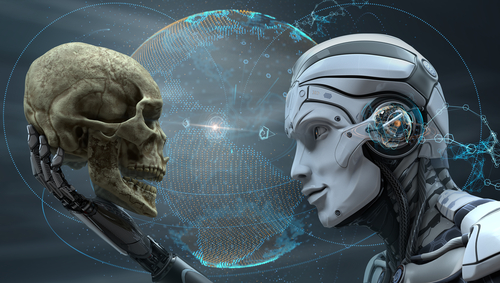A recent University of Cambridge study reveals both the advantages and limitations of AI in the corporate leadership arena, prompting intriguing discussions about its role alongside human CEOs. The results showcased AI’s ability to excel in operational tasks but struggle during unpredictable crises. Also known as black swan events, these moments are crucial for human creative thinking to solve complex decisions. The Cambridge researchers suggest a hybrid model combining AI and human strong suits.
AI vs Human Leadership in Routine Operations
Researchers at the University of Cambridge compared human CEOs to a leading large language model in strategic decision-making. AI outperformed human leaders in metrics like market share and profitability during a simulated automotive scenario. The AI’s success was attributed to its ability to process vast data sets and optimize product design and market strategies effectively.
Despite these strengths, the study highlights scenarios where AI faltered, especially in managing unforeseen disruptions. In such cases, AI demonstrated a significant shortcoming in adaptability, leading to its swift dismissal by virtual boards. This suggests a vital role for human creativity and intuition during crisis management.
Would ChatGPT Make a Better President Than Trump or Harris?#AIforPresident #ChatGPT2024 #PoliticalAI #ElectionDiscussion #AIvsHumanLeadership #TrumpVsHarris #AIinPolitics #FutureOfLeadership #ArtificialIntelligence #PoliticalTalk pic.twitter.com/LRMlhL8hPG
— SVIC Podcast (@svicpodcast) August 8, 2024
The Crucial Role of Human CEOs in Crisis Management
The study underscores the limitations of AI in handling black swan events. Such events demand not just data analysis but also human foresight and intuition. Humans can contextualize information and make nuanced decisions in complex situations, a skill AI has yet to develop fully. Human judgment remains crucial when facing unprecedented challenges, where data alone cannot predict the outcome.
A combination of AI’s data-crunching ability and human vision and ethics is key to navigating uncertainty. This balancing act enhances corporate strategy without compromising on the adaptability needed in real-world challenges.
AI is out of control 🤣 @thedorbrothers
— Clown World ™ 🤡 (@ClownWorld_) October 9, 2024
Preparing for a Hybrid Leadership Future
Cambridge researchers suggest that AI and human leaders will likely coalesce into a hybrid model. AI would manage data-driven tasks, while human CEOs focus on long-term visions and ethical considerations. This approach enhances business execution speed and productivity, ensuring companies can maintain a competitive edge in a rapidly changing environment.
While AI will not replace human CEOs entirely, it promises to augment leadership capabilities exponentially. As AI becomes an invaluable tool in strategic planning, its success will depend on effectively integrating human expertise for a well-rounded leadership model.

